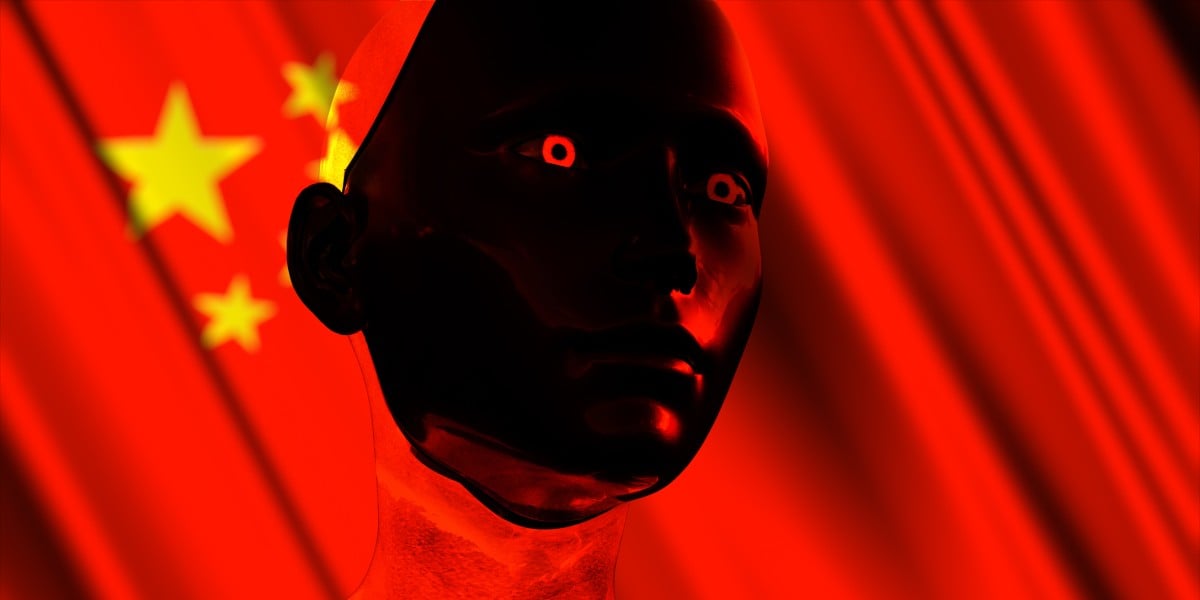Asia In Brief PLUS: Samsung exec jailed for selling DRAM secrets; ASUS launches sweetly scented mouse; Toyota’s smart city nears opening; and more Chinese president Xi Jinping last week staged an event at which he urged private sector leaders, including China’s Big Tech companies, to help the nation speed its technological development.
Huawei CEO and founder Ren Zhengfei, and Alibaba co-founder Jack Ma, were among the tech leaders to whom Xi “stressed the role of private enterprises in advancing China’s broader goals in terms of technological innovation, promoting rural vitalization and improving people’s well-being”, according to State media.
Xi also “urged entrepreneurs to focus on high-quality development, invest in their main businesses, strengthen their capacities for innovation, and increase their core competitiveness.”
China’s tech companies seem to have already got the message.
Huawei CEO Ren Zhengfei reportedly told president Xi that China’s efforts to create a technological “core and soul” – references to semiconductors and operating systems – are progressing well, meaning dependence on foreign products is less of an issue. Huawei has developed its own HarmonyOS that means the company is no longer reliant on Android and has also created server-grade Arm processors.
Jack Ma’s presence at the event was notable given he had previously disagreed with government policy and not long afterwards disappeared from public view in what was widely seen as punishment for daring to criticize the party line.
Later in the week, Alibaba did more or less exactly what Xi called for by announcing that in the next three years its digital infrastructure spend will exceed the sums it laid out in the last decade – but did so without enumerating its plan.
The company did, however, say its AI strategy is to develop artificial general intelligence as it feels human-level AIs “could have a significant influence on or even replace 50 percent of global GDP.”
China thinks AI has plenty of promise but also worries the tech may pollute its local internet as shown by China’s cyberspace regulators on Saturday announcing the targets of its 2025 campaign to cleanse the local internet of content deemed inappropriate include a fresh focus on AI-generated material.
The revisedpolicy was described by State media representing “enhance oversight of AI-generated content” as it means authorities will enforce the clear labelling of “synthetic materials”, and “impose penalties on the use of AI to spread misinformation”.
“Water armies” – groups paid to post content and comments online, will also be targeted.
Former Samsung exec jailed for leaking DRAM secrets to China
A South Korean court last week sentenced a former senior Samsung exec to seven years jail for leaking tech secrets to Chinese company Changxin Memory Technology (CXMT).
The exec apparently shared details of Samsung’s 18nm DRAM with CXMT and was paid “billions” of Won – a single billion is $700,000 – for leaking the IP. CXMT allegedly used the stolen tech to create products that rival Samsung’s
South Korean media report“> that the sentence was the longest ever imposed in a tech secrets leak case, and that the presiding judge rationalized that was fair as by allowing a Samsung rival to get ahead the convicted man had damaged South Korea’s economy.
Toyota’s ‘Woven City’ nears opening
Toyota on Saturday celebrated the completion of the first phase of buildings at “Woven City”, its experimental smart city in which some streets are pedestrian-only, others are dedicated to self-driving vehicles, and nasty things like logistics and garbage collection all happen in dedicated underground streets.
The automaker envisions 2,000 people will inhabit Woven City, which it sees as a living laboratory for mobility technologies.
ASUS offers sweetly scented mouse
Taiwan’s ASUS last week launched the “Fragrance Mouse” a pointing device that includes “an internal fragrance compartment with a refillable vial for aromatic oils.”
We think the reservoir is at the bottom of the mouse in the image below. ASUS hasn’t explained how fragrances waft from the reservoir to your nostrils. We’re guessing the small amount of heat produced by the mouse, and the hands that wield it, probably help.
We’re told the device “Has a distinctive style that adds a dash of elegance into any home workspace or office setup”
It’s otherwise just a mouse and offers dual-mode 2.4GHz wireless and Bluetooth connectivity and will survive ten million clicks.
Grab ponders robotaxis tests
Singapore-based Grab, the rideshare-and-more company that beat Uber in Southeast Asia, last week said it’s getting close to piloting robotaxi trials but doesn’t see them replacing humans.
“We see a very nice symphony where there are areas that are poorly served,” CEO Anthony Tong last week as he discussed the company’s Q4 results. “This is where robotaxi would really keep improving fulfillment rate and customer satisfaction. So those are places that are ripe for, I would say, introduction and pilots in the future.”
Grab produced its first ever year of positive EBITDA in the year ended December 31, 2024.
NTT builds AI tools that speak better Japanese
NTT’s Docomo business unit last week released two tools to help Japanese organizations more easily use AI.
One of the tools, named Rockadoc, can extract Japanese text from images and from tables – and even aplpy appropriate HTML tags for tables. NTT thinks the tool will help Japanese organizations with their Retrieval-Augmented Generation efforts.
The other tool, Chakohsi, checks the safety of text input to generative AI, then checks outputs too. Again, NTT has tuned the tech to recognize nuances of Japanese it feels tools created by coders in other nations might miss.
Both tools are free while in their current beta phase. ®


